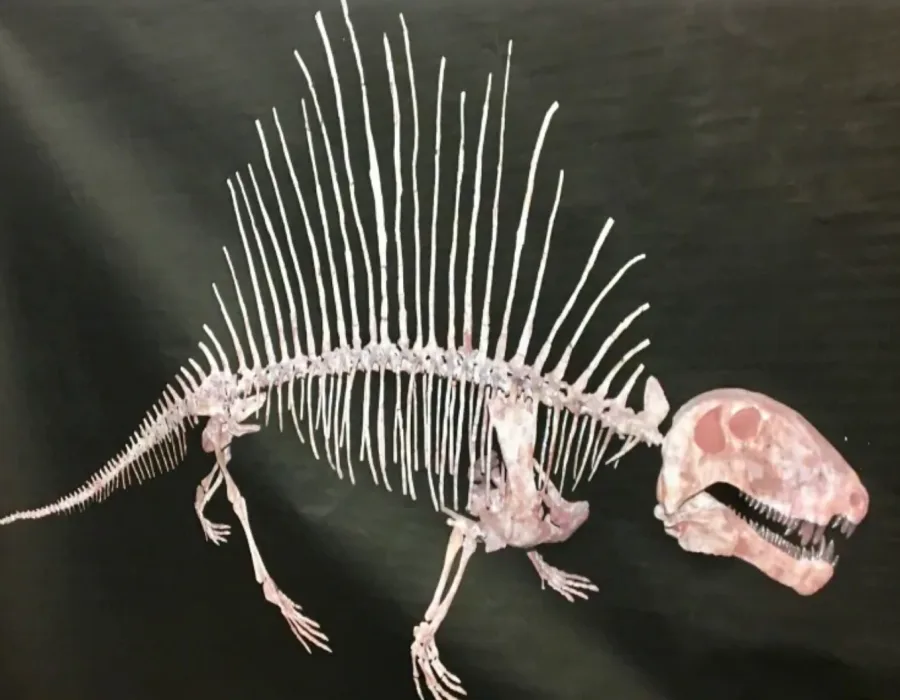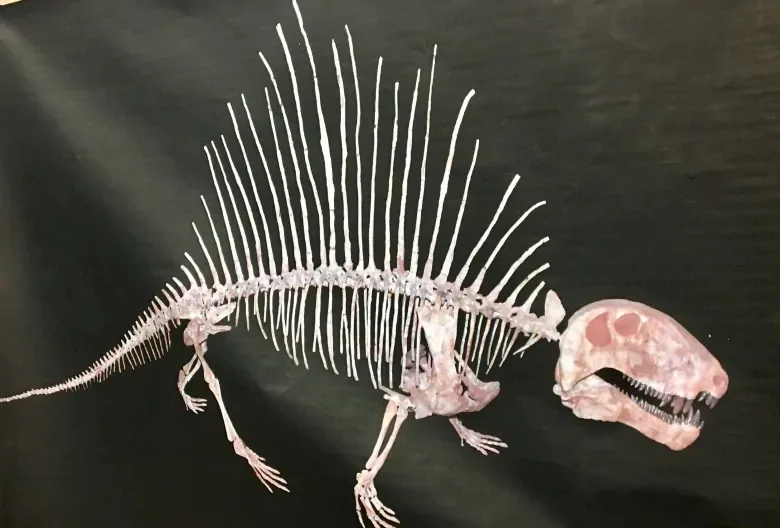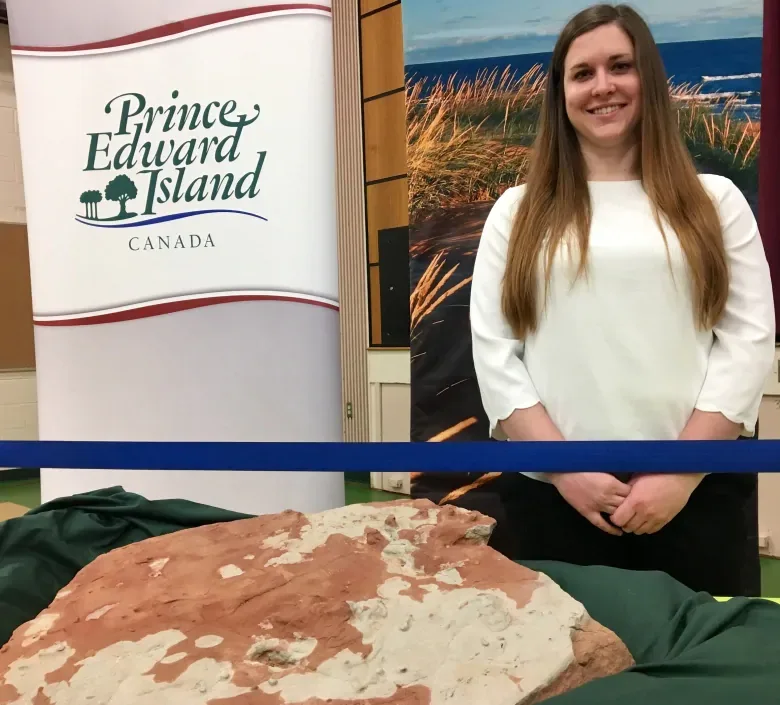
Dimetrodon footprints put PEI on paleontology 'world stage'

Image: A photograph of the fossil of the sail-backed dimetrodon. (Isabella Zavarise/CBC)
A series of footprints found in May in P.E.I. National Park near Cavendish have been confirmed as those of the sail-backed Bathygnathus borealis, a reptile-like mammal that lived 100 million years before dinosaurs.
"Prince Edward Island holds Canada's only fossil record of life on land in the Permian period, almost 300 million years ago", said Dr. John Calder from the department of geology at Saint Mary's University, in a news release.
SEE ALSO: Meet the first mammal species to die off from climate change
TOP PREDATOR OF ITS TIME
The reptile-like creature is commonly known as the dimetrodon and is considered to have been the top predator of its time, the release said.
Dimetrodons are well-known huge, ancient reptiles related to modern mammals that had giant spiny "sails" on their backs. They ate giant salamanders in the steamy, swampy forests of the early Permian period, around 290 million years ago, before the age of dinosaurs.

Image: Laura Macneil discovered the footprints on this rock in Cavendish in May. (Isabella Zavarise/CBC)
Although fossils are scattered in various places across the Island, these particular footprints are important as they indicate that P.E.I. holds some of Canada's richest evidence of terrestrial fossils of the Permian period.
Their fossils have previously been found in Germany and the United States.
The discovery also makes P.E.I. a globally significant paleontological location, according to the release.
"The fossil legacy of the Island has reached a point where it stands proudly on the world stage," Calder said.










